Israelis in Berlin – A community in the making
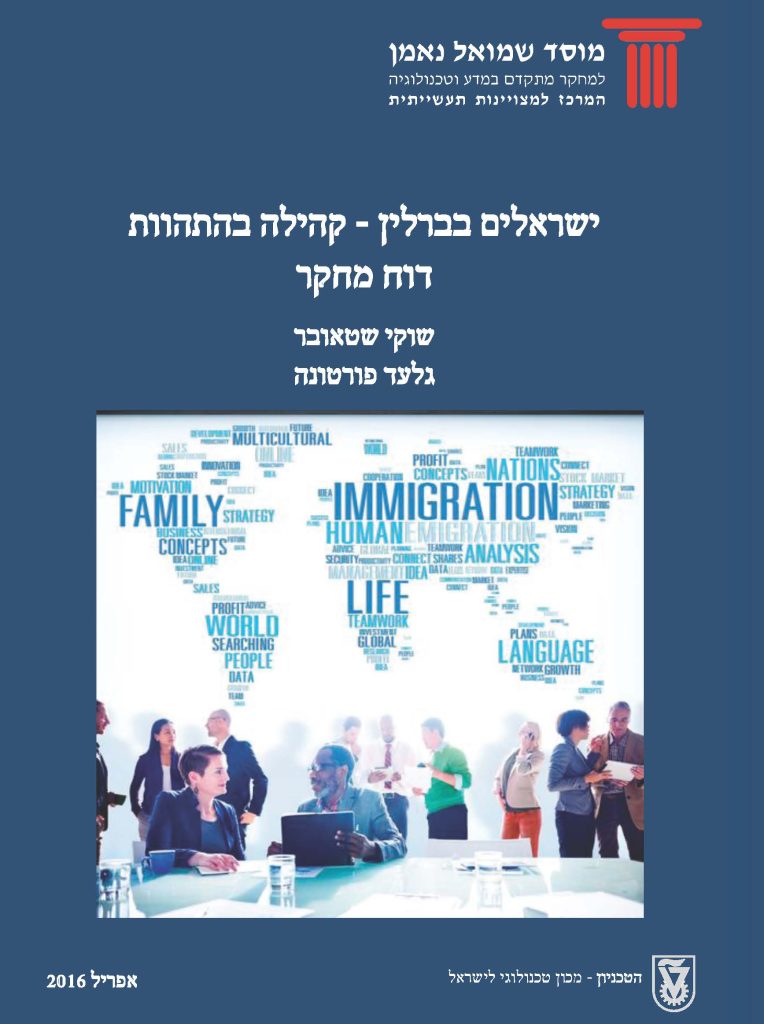
Over the years, the phenomenon of emigration from Israel has been harshly criticized by the public and the country’s leaders, and has been seen as a betrayal of the values of Zionism and opposed to the national conventions. Since the late eighties, this phenomenon has intensified, following the economic, social, cultural, and political changes in […]
Energy Forum 36: Energy Efficiency in Israel: Systems Upgrade
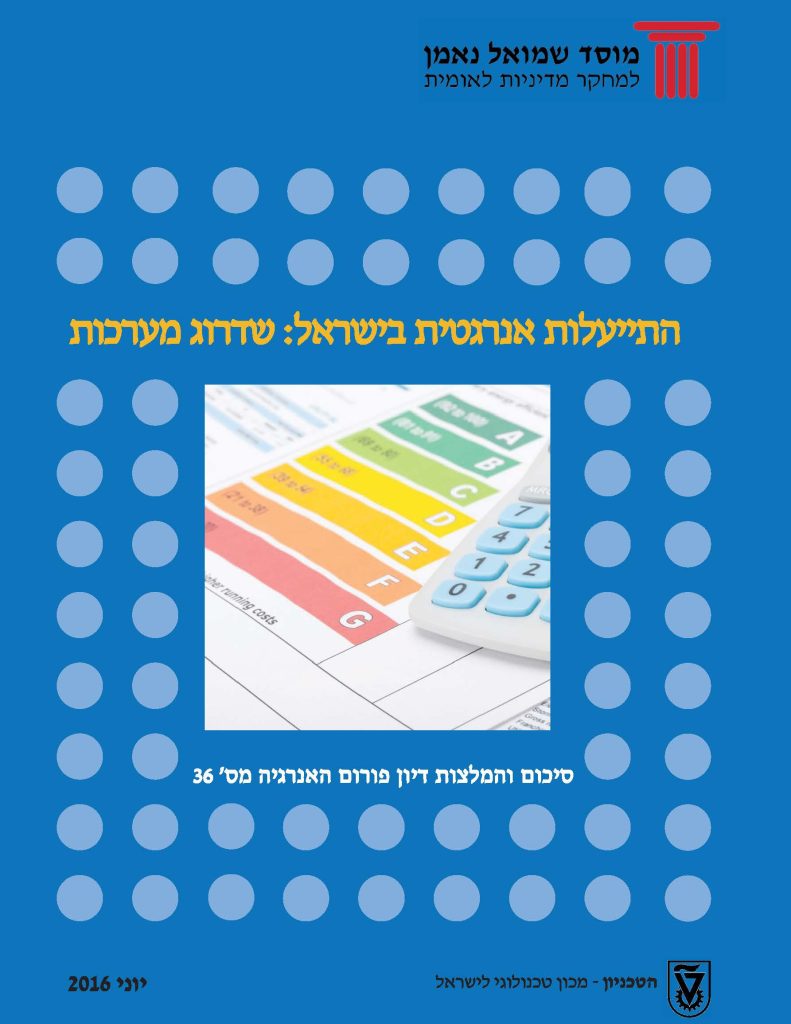
The project was carried out in collaboration with the Natural Resources and Environment Research Center at the University of Haifa. The study, which is carried out as part of a research grant from the local government – the Lottery and the Local Government Center, examines the factors that hinder the establishment of end-of-life facilities in […]
The Future of Universities – Is the Revolution in Front of Us?
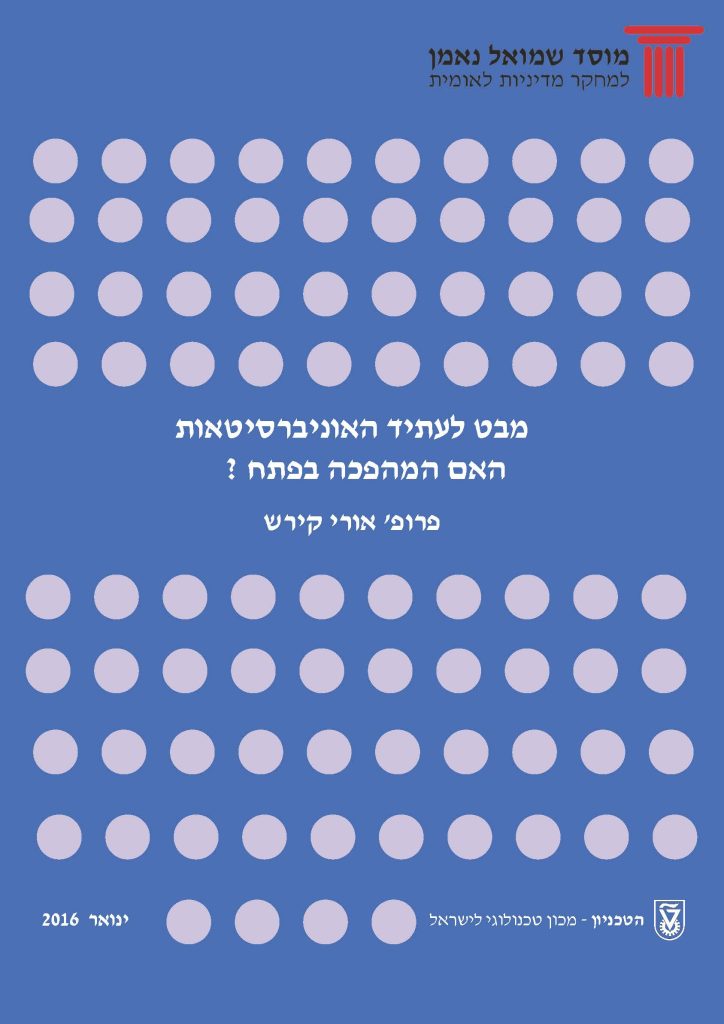
The object of this study is to evaluate the effects of current processes on the future of universities. A wide global view – including economic, academic, social and other aspects – is described, with special emphasis on Israeli issues. Due to significant changes in technology, society and business – combined forces are threating the future […]
Greenhouse Gas Emissions Reporting and Registration System in Israel: Summary of Reports for 2014
54 companies and organizations joined the greenhouse gas emissions in 2014 to the Ministry of Environmental Protection. Each of the reporting companies, enclosed a signed statement regarding the reliability of the data, as required by the Reporting and Registration System, which was developed in cooperation with the Ministry of Environmental Protection, the Energy and Environment […]
Holistic Assessment of Science Communication Based on the Positions of Different Stakeholders: Scientists, Teachers, Undergraduates, High School Students, and the Public
In recent years, scientists are increasingly requested to make science accessible to the general public. This accessibility will help promote scientific knowledge sharing and obtain public support for science. The research goals were to identify the common themes to science education and science communication and to explore how various stakeholders view these themes. We also […]
Promoting R&D and Innovation in the Israeli Periphery – Final report
The study, commissioned by the Israel National Council for Research and Development (MOLMOP) at the Ministry of Science, Technology and Space, was aimed at providing decision makers with an updated account of the innovation and R&D activities in Israel’s peripheral areas. The study, completed in 2016, identified the potential of Israel’s peripheral areas to stimulate […]
Renewable Energy and Energy Efficiency Industry in Israel Update and policy recommendations for leveraging Israeli R&D and industry – English executive summary
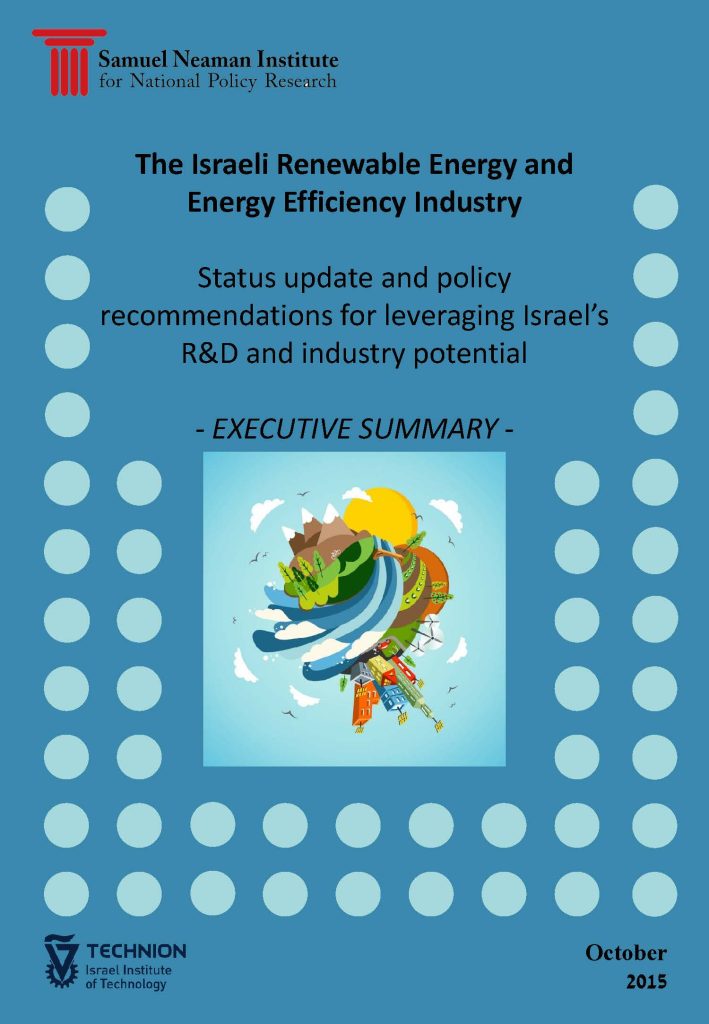
This paper is aimed to evaluate the potential of the Israeli renewable energies and energy efficiency industry, and lay out policy recommendations for effective commercialization. The renewable energy market worldwide is continuously growing – including both installation and development of innovative technologies. As the share of renewable energy in the grid increases, the need for […]
Renewable Energy and Energy Efficiency Industry in Israel Update and policy recommendations for leveraging Israeli R&D and industry

This paper is aimed to evaluate the potential of the Israeli renewable energies and energy efficiency industry, and lay out policy recommendations for effective commercialization. The renewable energy market worldwide is continuously growing – including both installation and development of innovative technologies. As the share of renewable energy in the grid increases, the need […]
Research universities in the national R&D in Israel
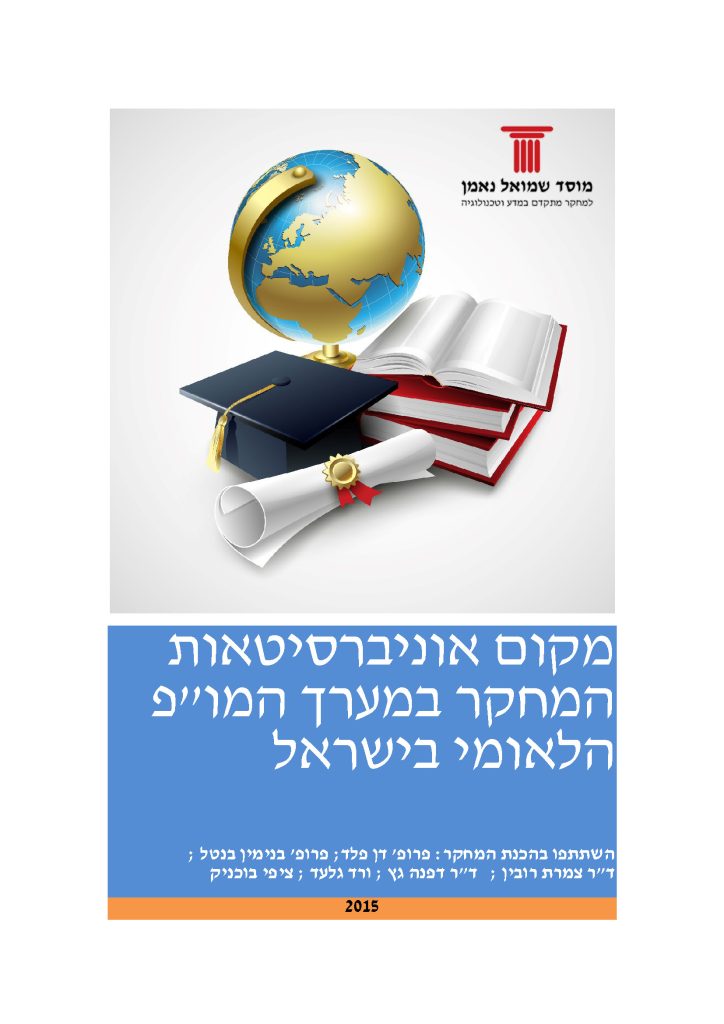
This work provides an overview and analysis of the contributions of the Israeli research universities to the nation’s R&D system within an international comparative context. The report begins with a review of the structure and governance of the R&D systems in a number of countries, (Chapter 2). Chapter 3 reviews the evolution of universities in […]
Sustainable aquaculture in the Mediterranean Sea
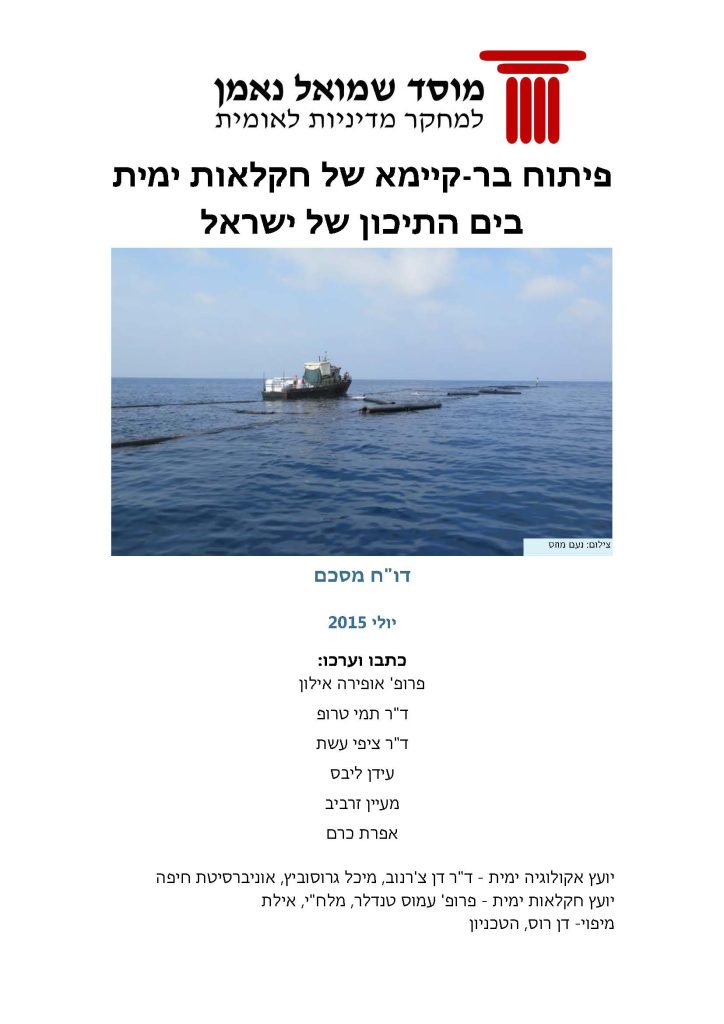
According to the Food and Agriculture Organization (FAO) publication, most of the world fishing areas have been fully utilized or over fished, while demand for seafood (fish, mollusks, crabs and algae) is increasing, due to their nutritional benefits. In order to deal with the global food crisis, and the gap between the quantity supplied by […]
